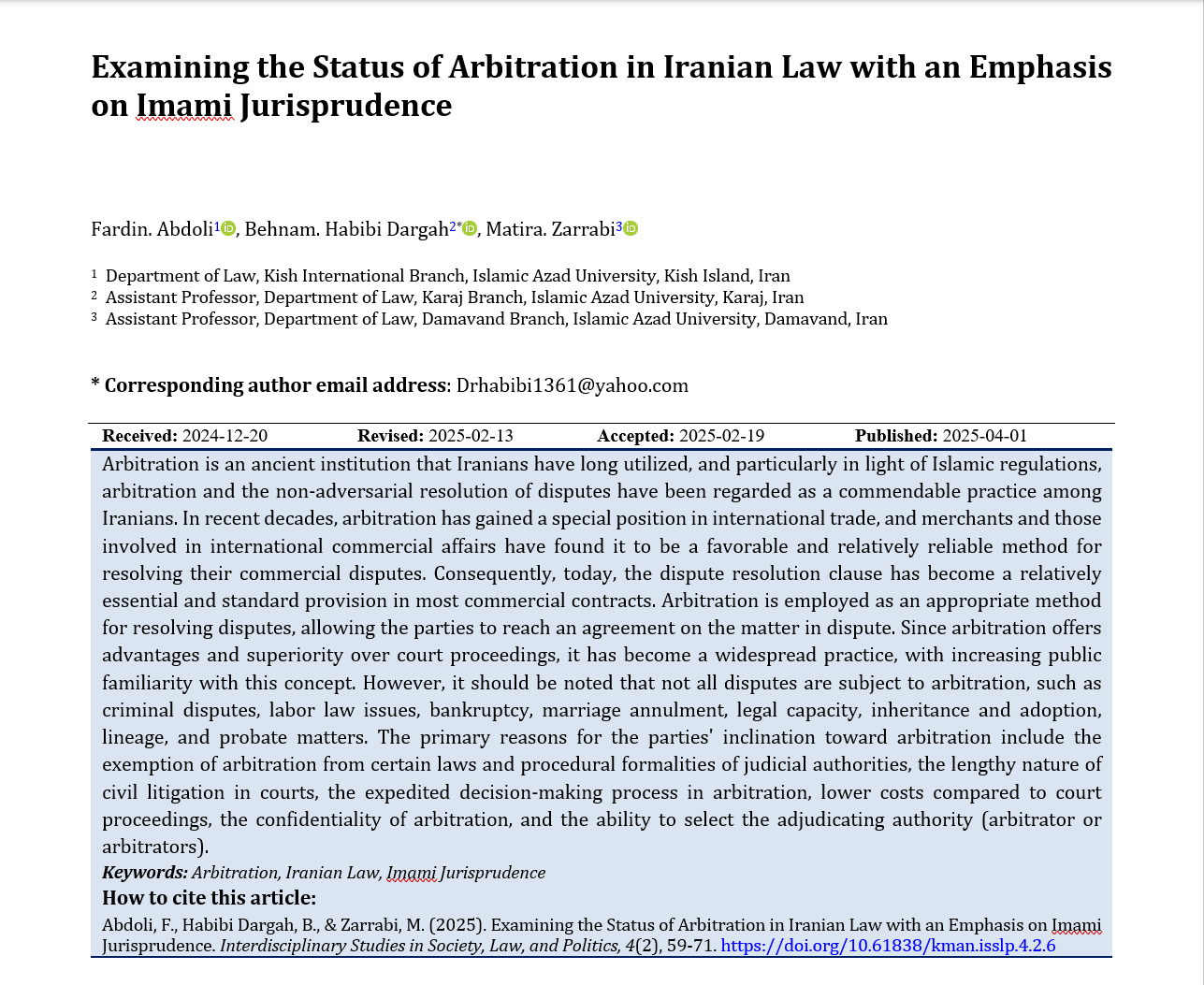Examining the Status of Arbitration in Iranian Law with an Emphasis on Imami Jurisprudence
Keywords:
arbitration, Iranian law, Imami jurisprudenceAbstract
Arbitration is an ancient institution that Iranians have long utilized, and particularly in light of Islamic regulations, arbitration and the non-adversarial resolution of disputes have been regarded as a commendable practice among Iranians. In recent decades, arbitration has gained a special position in international trade, and merchants and those involved in international commercial affairs have found it to be a favorable and relatively reliable method for resolving their commercial disputes. Consequently, today, the dispute resolution clause has become a relatively essential and standard provision in most commercial contracts. Arbitration is employed as an appropriate method for resolving disputes, allowing the parties to reach an agreement on the matter in dispute. Since arbitration offers advantages and superiority over court proceedings, it has become a widespread practice, with increasing public familiarity with this concept. However, it should be noted that not all disputes are subject to arbitration, such as criminal disputes, labor law issues, bankruptcy, marriage annulment, legal capacity, inheritance and adoption, lineage, and probate matters. The primary reasons for the parties' inclination toward arbitration include the exemption of arbitration from certain laws and procedural formalities of judicial authorities, the lengthy nature of civil litigation in courts, the expedited decision-making process in arbitration, lower costs compared to court proceedings, the confidentiality of arbitration, and the ability to select the adjudicating authority (arbitrator or arbitrators).
Downloads






